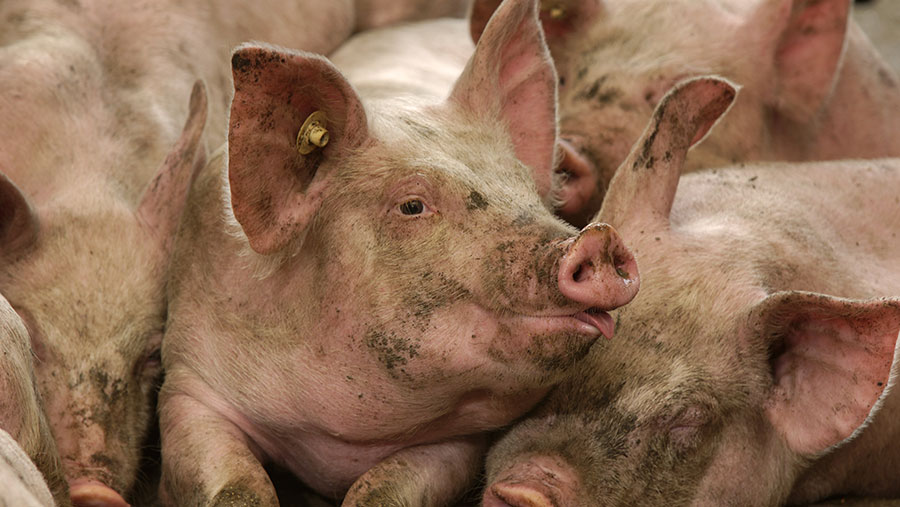‘Disturbing’ antibiotics resistance found in Chinese pigs
 © Design Pics Inc/Rex/Shutterstock
© Design Pics Inc/Rex/Shutterstock A report of antibiotics resistance in pigs in China has been branded “disturbing and disappointing” by the Responsible Use of Medicines in Agriculture Alliance (Ruma).
An article, published last week in the medical journal the Lancet of Infectious Diseases, detailed the discovery of a new resistance gene in E coli bacteria found in pigs in China.
MCR-1 makes common bacteria resistant to polymixin antibiotics such as colistin, which are known as “last-line” antibiotics as they often used as a drug of final resort to treat serious infections by multiple drug-resistant bacteria.
In a statement, Ruma called the gene find “disturbing and disappointing.”
While troubled by the report, John Fitzgerald, Ruma’s secretary general, said such antibiotics resistance is unlikely to arise in UK livestock.
“The report from China didn’t specifically look at where the resistance came from,” he said.
See also: McDonald’s aims to cut antibiotics use in farm animals
In China, the world’s largest pig producer, antibiotics aren’t typically administered under veterinary supervision. In the UK, however, such veterinary controls are required.
“All use of antibiotics in the UK for animals can only be done with veterinary supervision. Also, antibiotics are also not as readily available and are not used in the UK for growth promotion,” said Mr Fitzgerald.
On the heels of the China report, 20 health and medical experts have called on the British government and the European Commission (EC) to put an end to routine, preventative antibiotics use in healthy animals.
In a letter, published in The Times, they called for “greater political action against the overuse of antibiotics in agriculture.”
A recent Veterinary Medicines Directorate report, cited in the letter, revealed that total 2014 UK veterinary sales of antibiotics classified as “critically important to human medicine” increased 3% to a new record high.
“While GPs strive to curb prescribing practices, the farming sector also needs to move towards more selective antibiotic administration,” wrote Babulal Sethia, president, Royal Society of Medicine.
Preventive antibiotics use
However, Ruma said it would “be of great value” to review data from Germany, Spain and Italy before any decisions on restricting the use of veterinary medicine are made.
According to Ruma, 80% of sales of European polymixin – mainly colistin – come from these three EU member states.
See also: German farmers face antibiotic use restriction
Meanwhile in the UK, colistin “is only sparingly used” and just five authorised colistin products are available.
However, Mr Fitzgerald added antibiotics resistance is “something we need to be very careful about”.
“Bacteria do not respect international borders, they do not respect species boundaries. It is in everyone’s interest to work together to use antibiotics responsibly in human and animal medicine.”
